1916 Grk Magazine article upset that soldiers in grk army speak Albanian
Collapse
X
-
Sir george i don't know if you know but the macedonian minority is completely ignored in greece as the greeks claim they simply don't exist.But if you are saying that they will in thefuture recognize them that's news to us can you elaborate if that's the case.
-
-
What do you mean by the above? That their decisions to deny the existence of Macedonians will be reversed one day? Or what they have done isn't really that bad?Originally posted by SirGeorgeI don't believe the Greek government has gone too far for denying Macedonians and I thank God for that.
Leave a comment:
-
-
To address all: if you were to even further back in time you'd see tons of Turkish culture to be Persian or Mongolian...it really is the beautiful thing of cultural anthropology.Originally posted by George S. View PostSir George doesn't the greek govt get the shits when in the navy they start to speak
albanian.This lets the cat out of the bag as there is no homogenity in greece.SG i'm sure if you look at the history you'll see how artificially created greece was by the great powers in the 19th century.People simply became greek as long as they spoke greek.In my everyday encounters i meet a lot of greek friends like yourself they have an opinion and admit that the government of greece has gone too far not to recognize macedonia.When they should be living in harmony & sort out their differences about the past injustices greece has chosen to ignore it's peacefull neighbour.Greece has shown total disrespect whether it's recognizing macedonia or it's macedonian minority within it's borders.
As for George S. yes there is no homogeneity in Greece just as there isn't in any other country in the world...not even Iceland. It's truly fascinating, but for some reason ever since Nazism, nationalists have gotten it into their minds that in order to have a strong and united people they need to share the same Y-DNA haploid alleles... quite odd a belief if you ask me. Of course before the Nazi's people had the idea that bloodlines were influenced by God and that God loved royalty the most which was why they should have all the nice houses/palaces and money to control other people.
As for the modern day I doubt the Greek soldiers speak Albanian...and I could care less if they did...they really pissed me off in the Athens parade when they started shouting racist slogans. We must realize that during the 1800's wars against the Ottoman empire, it wasn't unlikely for there to be divisions of various ethnic soldiers from different nations...especially if they were fighting for the same cause and their borders didn't exist due to a controlling empire. Such strategy was made famous by Napoleon in Western Europe...but not full-blown.
Anyway, I don't believe the Greek government has gone too far for denying Macedonians and I thank God for that. When I see to what extents other European countries have gone to in the last century to ethnically cleanse themselves and even heinous racist crimes against each other, I always say Thank God it isn't happening in the Balkans. lol, I guess it's best to keep that hate on a forum or youtube page. I wish for no innocent people to die ever as this in my opinion is the worst of climaxes.
Leave a comment:
-
-
Yes, there is a Turkish influence in cultural dresses all over the Balkans but mostly in women dress, not in men. Only the word fustanella is coming from Turkish word (maybe an Arabic/Persian word) for dress, "fistan" but the dress itself definitely not related with the Turks because of a simple reason. Turkish people never wore skirt like dresses cuz you cant ride a horse with it. The men from central Asia or Eurasia was only wearing pants. Pants already invented in central Asia then it became a tradition and they never wore anything beside pants.Originally posted by SirGeorge8600 View PostIt's of Turkish influence just like most cultural dress in the Balkans.
There is a picture of an Albanian basibozuk chief from 1880 in wikipedia page and these muslim Albanians was wearing fustanella too;

It`s already quite interesting that how come an obviously Albanian men (muslim and christian) common dress became national dress of Greeks. Actually it`s not that interesting if we consider that Albanians themselves became neo-hellenes, not only their dressing habits.
Leave a comment:
-
-
Sir George doesn't the greek govt get the shits when in the navy they start to speak
albanian.This lets the cat out of the bag as there is no homogenity in greece.SG i'm sure if you look at the history you'll see how artificially created greece was by the great powers in the 19th century.People simply became greek as long as they spoke greek.In my everyday encounters i meet a lot of greek friends like yourself they have an opinion and admit that the government of greece has gone too far not to recognize macedonia.When they should be living in harmony & sort out their differences about the past injustices greece has chosen to ignore it's peacefull neighbour.Greece has shown total disrespect whether it's recognizing macedonia or it's macedonian minority within it's borders.
Leave a comment:
-
-
Welcome to our forum Sir George, may I ask from where in the Balkans you have your roots?
Leave a comment:
-
-
It's of Turkish influence just like most cultural dress in the Balkans.Originally posted by Risto the Great View PostThe difference is that they are not Albanians any more .... they are "Arvanites". And the "so-called" Greek national dress .... is still a dress .... and is Albanian.
Leave a comment:
-
-


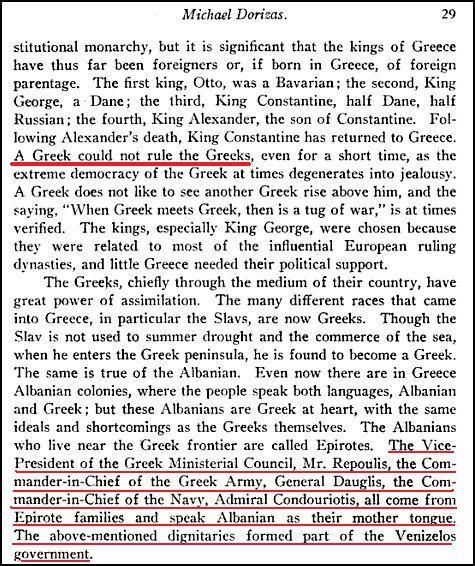
The heavily underlined "A Greek cannot rule Greeks" made me laugh instantly. Why? I wonder if there ever was a "Greek" that ever ruled this land:
Just one example
page 262

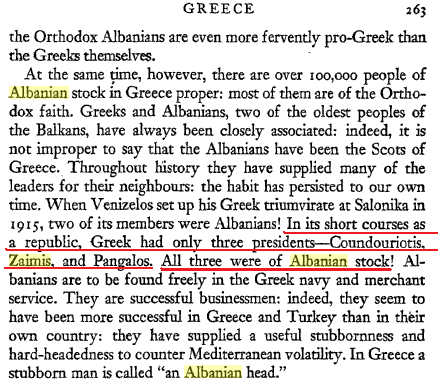
Balkan Background by Bernard Newman
Leave a comment:
-
-
Voltron i know of heaps of greeks who were albanian background & spoke albanian.You can't hide it.You must be ashamed to admit it is true.
Leave a comment:
-
-
We have been accustomed with the groundless claims of our southern neighbors to diminish the influence of Albanians in the creation of Greece. But their madness has no boundary: they are trying with all means to obscure the Albanian origin of the Suliotes. Let take us a look what they have wrote in Wiki:
Marko Boçari was of course a Suliot, but what article fail to mention is that Suliotes were just a branch of Albanian chams, one of the most warlike Albanian communities in south. Their name probably derives from the Albanian word suli, meaning "mountain summit" as Babiniotis ascertained: G. Λεξικό της Νέας Ελληνικής Γλώσσας. Athens, 1998.Markos Botsaris (Greek: Μάρκος Μπότσαρης, c. 1788 – 21 August 1823) was a Souliote captain[1] and a hero of the War of Greek Independence. Markos Botsaris is among the most revered national heroes in Greece.
Botsaris was born into one of the leading clans of the Souliotes, in Epirus.[2] He was the second son of captain Kitsos Botsaris, who was murdered in Arta in 1809 under the orders of Ali Pasha. The Botsaris clan came from the village of Dragani (today Ambelia), near Paramythia.
http://en.wikipedia.org/wiki/Markos_Botsaris
Again the Greek editors of Wiki have manipulate the content of article because the Albanian language of Suliotes never became extinct.Souliotes (Greek: Σουλιώτες, also spelled Souliots or Suliots) were a warlike community who became famous across Greece for their resistance against the local Ottoman Pashalik of Yanina ruled by the Muslim Albanian Ali Pasha. After their defeat in 1803, the Souliotes were forced to move to the rest of Greece, and many of them played a prominent role in the Greek War of Independence starting in 1821, under leaders such as Markos Botsaris and Kitsos Tzavelas.
The Souliotes originally spoke their own sub-branch of the Cham Albanian dialect and eventually became bilingual in Albanian and Greek. After their assimilation, a language shift to Greek occurred, while the Souliotic dialect became extinct.[1][2]
http://en.wikipedia.org/wiki/Souliotes
Even a modern researcher with Greek sympathies like Katherine Elizabeth Fleming admits kindly that:
“The Soultioes, who are of Albanian origin but usually are grouped separately, also had ancestors who served as exemplars for the community of Souli” (The Muslim Bonaparte: diplomacy and orientalism in Ali Pasha's Greece: 62)."A Turkish force of four thousand men was surprised one summer night in 1823 by Marco Botsaris, one of the ablest champions of Greek independence, and three hundred and fifty Suliots, a warrior tribe of Albanian descent" (The companion guide to mainland Greece, Brian De Jongh :1983).In the prerevolution period, Ali Pasha of Joannina in northwest Greece attacked the villages of Souli (1792–1804). Its inhabitants, orthodox Albanians, strongly resisted, and women played an important role.
Women and war: a historical encyclopedia from antiquity to the present: Volume 1 - Page 255: Bernard A. Cook - 2006Last edited by Epirot; 03-13-2011, 04:36 AM.
Leave a comment:
-
-
Let's now re-iterate again where we are at with this debate (not really a debate just reality):
]

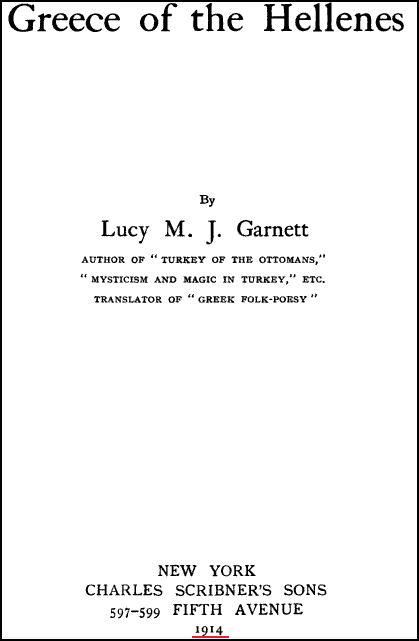
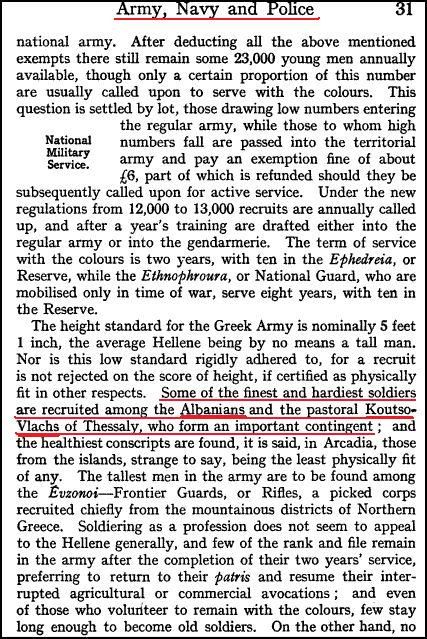
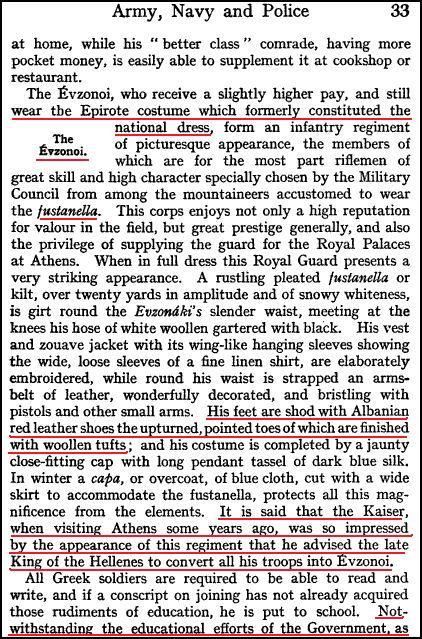


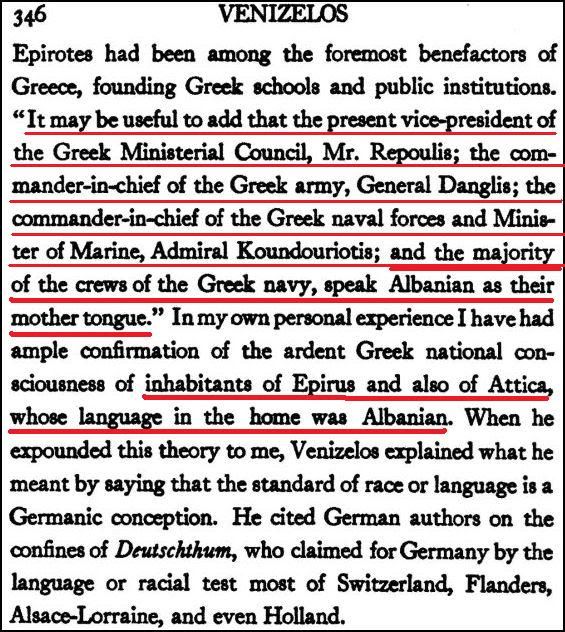
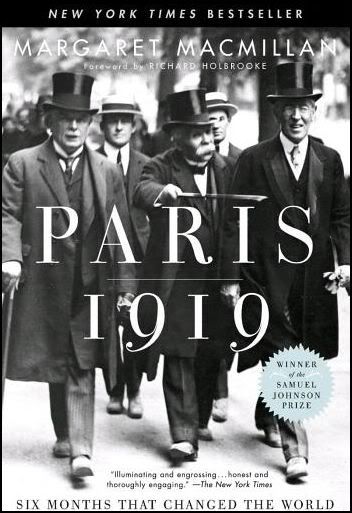
page 352
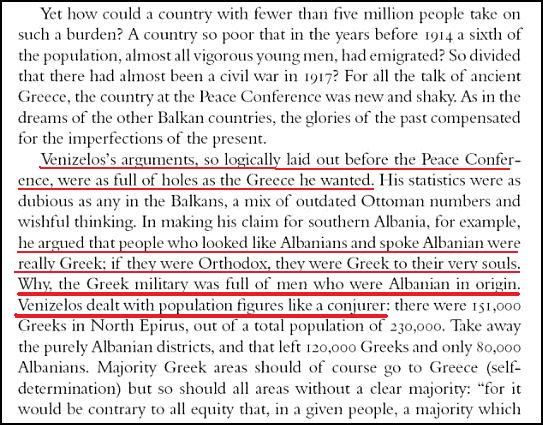

Collective memory, by Victor Roudometof page 155

The Albanians, by Edwin E. Jacques. page 328
Leave a comment:
-
-
I don't care what map you toss up in front of me. Do these maps take bi-lingualism or tri-lingualism into consideration?Originally posted by Voltron View PostTM you dont get it. Arvanitika was spoken as a majority only in certain areas of Greece. You can look at any map. Its not denial, its historical fact.
Leave a comment:
-
-
TM you dont get it. Arvanitika was spoken as a majority only in certain areas of Greece. You can look at any map. Its not denial, its historical fact.
Leave a comment:
-


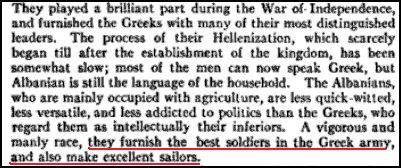
Leave a comment: